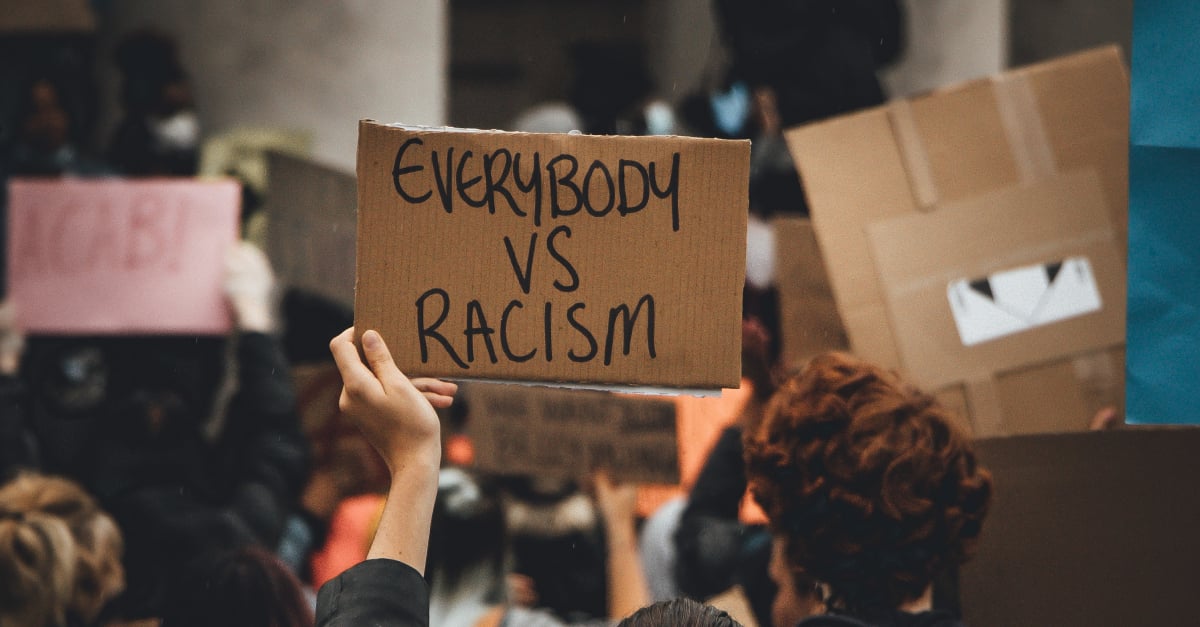This is how we're changing the conversation on racism
2 September 2022 | By: Newcastle University | 2 min read
Research by a Newcastle University academic is helping to change the way racism and Islamophobia are talked about in the UK.
Professor Peter Hopkins has spent more than 20 years exploring how racism and Islamophobia impact people from diverse ethnic and religious backgrounds.
Working with colleagues on a recent study, he found that although the majority of young Muslims in Scotland are engaged in political activism, and play an active role in their community, many feel anxious about doing so.
Why?
Because of everyday experiences of Islamophobia and racism, including online abuse.
In many cases, this had the effect of silencing and marginalising them. Additionally, their contributions to public life were rarely reported by the media - perpetuating the biased image of them.
The first-ever Public Inquiry on Islamophobia in Scotland
Professor Hopkins and his team shared the findings of this study with Anas Sarwar, an elected Member of the Scottish Parliament (MSP), which led to Scotland’s first ever Cross-Party Group on Tackling Islamophobia being established.
Through this, Professor Hopkins was invited to lead the first-ever Public Inquiry on Islamophobia in Scotland.
This came three years after a report by independent think tank The Runnymede Trust highlighted the extent to which politicians in Scotland were not only disengaged with racism and Islamophobia, but were pushing racial equality down the agenda.
“There was a sense at that time that Scotland had more urgent and important matters to deal with.” Professor Peter Hopkins, Professor of Social Geography
“The Runnymede Trust report was a welcome wake-up call that policymakers, and the country more generally, needed to stop deflecting and displacing racism and start engaging with how race equality can be promoted, so it was really encouraging to see MSPs recognising that they needed to take action on Islamophobia and establishing the Cross-Party Group."
The findings of the public inquiry were widely endorsed by MSPs.
And more recently, with Anas Sarwar MSP, who is now the leader of the Scottish Labour Party, Professor Hopkins worked to develop a new Cross-Party Group on Challenging Racial and Religious Prejudice.
“One of the first steps to tackling something is defining it.”
Additionally, Professor Hopkins provided expert advice to an All-Party Parliamentary Group (APPG) of UK MPs about British Muslims’ experiences of Islamophobia based on his research.
He contributed to the recommendation that Islamophobia be regarded as ‘a type of racism that targets expressions of Muslimness or perceived Muslimness.’
This definition reflects the fact that other ethnic groups, not just Muslims, experience Islamophobic abuse – a view consistent with the findings of earlier research carried out by Professor Hopkins.
“One of the first steps to tackling something is to define it so that people can see for themselves the extent to which it is taking place.” Professor Peter Hopkins
“If we have a common understanding of what Islamophobia is, it will help to ensure that action can be taken to address this form of racism.”
The definition has since been widely adopted by most of the UK political parties, and at least 22 local authorities.
Addressing misrepresentations in the media
Misrepresentations of Muslims in the media is a recurrent theme in Professor Hopkins’ work and one which underpins a lot of the Islamophobia and racial abuse that young people from diverse ethnic and religious backgrounds experience.
In 2019, Professor Hopkins worked with journalist and director, Uzma Mir, to develop Scotland’s first set of guidelines for reporting Islam and Muslims. These were well received by the Scottish media industry, with the lead organiser for the Scotland branch of the National Union of Journalists saying that the guidelines were key to “developing responsible, informed journalism in this area”.
Similarly, the lead news and features writer at the Courier newspaper in Dundee, which has a daily readership of 35,000, said the guidelines “provide a valuable checklist on ensuring that a piece is accurate and avoids inadvertently offending members of Scottish society”.
These media guidelines have now been officially adopted by IMPRESS, the Independent Monitor for the Press, the UK regulator for over 150 digital and print publications that together reach more than 15 million readers each month.
The impact of Professor Hopkins’ work
Professor Hopkins’ work has been crucial in equipping educators to better deal with issues relating to racism and Islamophobia.
In addition to more than 30 universities across the UK adopting the APPG’s definition of Islamophobia, the Education Institute for Scotland - the largest teaching union in Scotland and one of Scotland’s most respected voices in education - published guidance on challenging anti-Muslim prejudice which was partly informed by research by Professor Hopkins.
Beyond Scotland, his work has been used by Northumbria Police as a mandatory component of their training for Hate Crime Champions. Those who have participated in this include more than 5,000 students and hundreds of teachers and voluntary groups, as well as more than 200 police officers. He also collaborated with Tell MAMA to produce one of the first reports about Islamophobia and anti-Muslim hatred in the North East of England.
You might also like
- learn more about Professor Peter Hopkins, Leverhulme Major Research Fellow and Professor of Social Geography
- explore our School of Geography, Politics, and Sociology and our Geographies of Social Change Research Cluster
